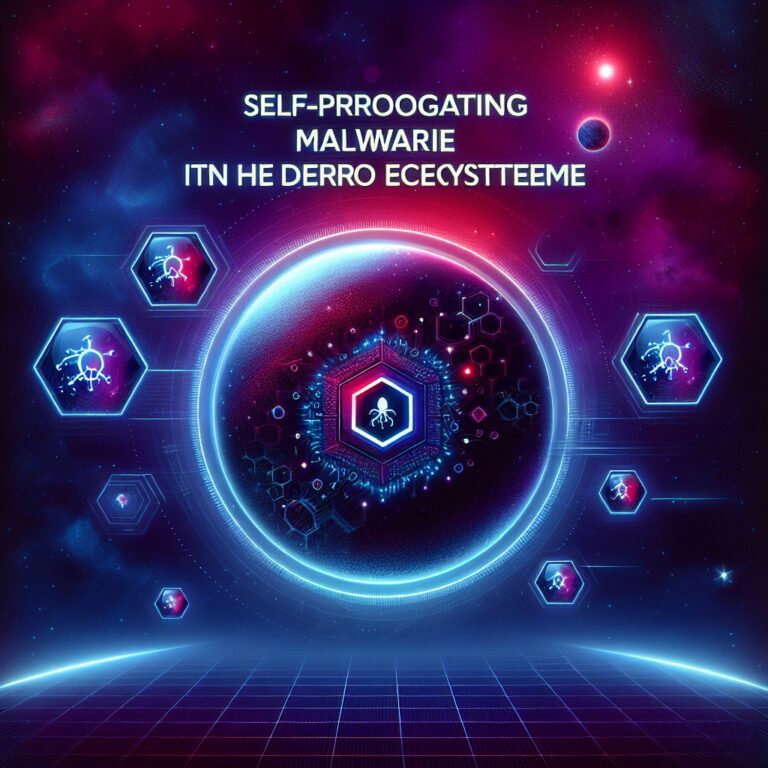In a startling development for the cryptocurrency world, a self-propagating malware has infiltrated the privacy-focused Dero ecosystem, exploiting unsecured Docker setups globally. This unsettling discovery, spotlighted in a report by cybersecurity titan Kaspersky, underscores a growing threat in the crypto landscape. The malware cleverly commandeers vulnerable servers, weaving them into a decentralized cryptojacking network to mine Dero—a privacy coin with a rising profile among crypto enthusiasts.
The Anatomy of the Attack
Here’s the catch: the malware exploits publicly exposed Docker APIs, transforming them into launchpads for its cryptojacking crusade. Docker, a staple in modern software deployment that packages applications into containers, becomes a double-edged sword when improperly secured. Once the malware infiltrates, it conjures malevolent containers, hijacking system resources to mine Dero while simultaneously scouting for more targets. As of early May, over 520 Docker APIs remain exposed on port 2375—a glaring vulnerability in a hyper-connected world.
“The scale of this operation is both impressive and concerning,” noted Alexey Vurkin, a senior analyst at Kaspersky. “It’s not just about mining Dero; it’s about the potential for widespread disruption.”
Implications for the Cryptocurrency Market
The implications of this malware campaign ripple far beyond the Dero community. It prompts a reevaluation of security protocols across the crypto landscape, especially as decentralized networks become more intertwined with traditional IT infrastructure. The incident raises pertinent questions about the robustness of current security frameworks and the readiness of the crypto industry to combat increasingly sophisticated threats. This follows a pattern of institutional adoption, which we detailed in our analysis of corporate treasury investments.
As blockchain networks aim for wider adoption, security remains a critical hurdle. The recent integration of Solana into MetaMask, for instance, highlights the growing interconnectedness of blockchain platforms. While this fosters innovation and accessibility, it also amplifies security challenges—every new integration potentially opens a new front for cyber threats.
Historical Context and Future Outlook
Historically, the crypto sector has been no stranger to cyber threats. From the infamous Mt. Gox hack to the more recent Poly Network exploit, each incident has underscored the fragile balance between innovation and security. This latest malware campaign targeting Dero is a stark reminder of the persistent threat landscape—one that evolves in lockstep with technological advancements. For a deeper dive into the regulatory implications, see our coverage of the SEC’s latest guidance.
Looking ahead, the industry faces the dual challenge of fostering innovation while fortifying its defenses. As regulatory frameworks slowly take shape, with initiatives like the U.S. Senate’s GENIUS Act on stablecoins inching closer to fruition, the emphasis on security is likely to intensify.
But here’s where it gets interesting: the very nature of blockchain’s decentralized architecture could be its saving grace. By distributing risk and responsibility, decentralized networks offer a unique resilience against concentrated attacks. However, this potential remains largely theoretical until robust, real-world implementations can decisively counter threats like the Dero-targeted malware.
Conclusion: A Call for Vigilance
As the crypto world digests this latest security breach, one thing is clear—vigilance is paramount. The path forward demands a collaborative effort from developers, security experts, and regulators alike. With innovations like Square’s real-time Bitcoin payments on the horizon, ensuring that such advancements don’t come at the cost of security is crucial.
This malware incident is a wake-up call for the entire ecosystem. As we tread deeper into 2025, the crypto community must remain ever-watchful, embracing new security paradigms without stifling the innovation that defines its very essence. The road ahead is fraught with challenges, but with them comes the opportunity to build a more secure and resilient digital economy.
Source
This article is based on: The Protocol: Self-spreading Malware Found in Privacy Crypto Dero
Further Reading
Deepen your understanding with these related articles:
- Crypto Coalition Tells SEC Staking Is ‘Essential Good,’ Not a Security
- U.S. Congress Braces for Intense Debate Over Crypto Legislation This Summer (openai)
- US crypto groups urge SEC for clarity on staking

Steve Gregory is a lawyer in the United States who specializes in licensing for cryptocurrency companies and products. Steve began his career as an attorney in 2015 but made the switch to working in cryptocurrency full time shortly after joining the original team at Gemini Trust Company, an early cryptocurrency exchange based in New York City. Steve then joined CEX.io and was able to launch their regulated US-based cryptocurrency. Steve then went on to become the CEO at currency.com when he ran for four years and was able to lead currency.com to being fully acquired in 2025.


